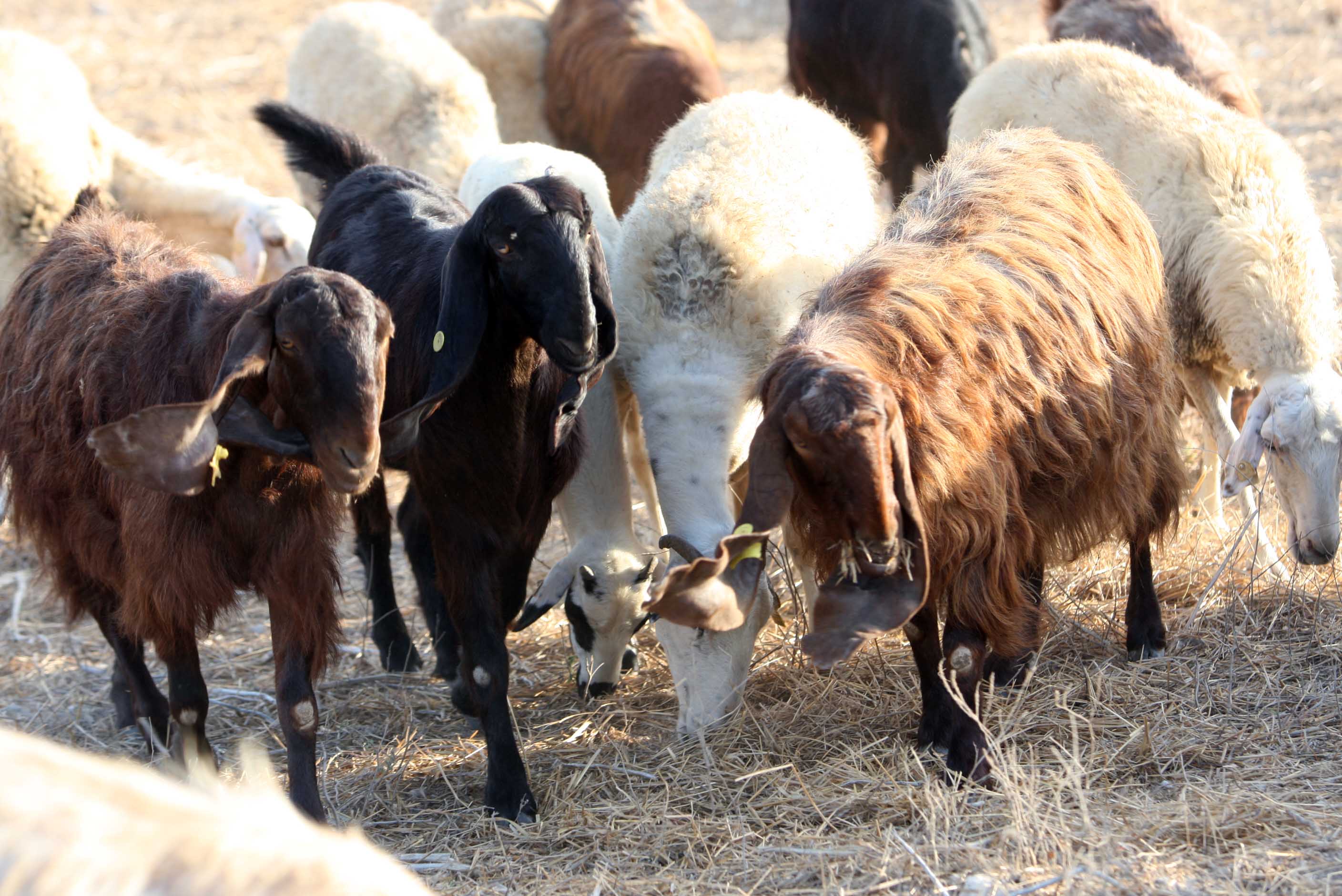The steps the government has taken to protect Cyprus’ halloumi industry are impossible to follow say cheese producers
European Commission approval of Cyprus’ application to make halloumi a Protected Designation of Origin (PDO) will destroy the cheese-making industry worth more than €200 million in exports a year, producers have warned.
“This will be a catastrophe,” Giorgos Petrou president of the Dairy Producers Association and owner of Petrou Bros Dairy Products told the Sunday Mail.
Once the specifications for halloumi included in the file are approved, production of halloumi will be reduced by almost 60 per cent he said.
The PDO is supposed to be a way of protecting a product that is quintessentially Cypriot from foreign competitors. Instead, producers say, it is likely to herald the demise of Cypriot halloumi.
The reason, they say, is that the specifications – set by the agriculture ministry itself – to receive the PDO are so strict that Cyprus simply will not be able to meet them, a failure that foreign competitors would exploit.
Some of the specifications are silly: for example, the PDO file says the cheese must be folded, not round.
Some are impossible: the file stipulates five types of plants the animals should graze on.Three of these plants are protected species.
But the biggest challenge is the type of milk used to make the halloumi.
The PDO file Cyprus submitted in 2014 dictates that ‘traditional’ halloumi should be made with 51 per cent sheep and goats’ milk and 49 per cent cow’s milk. The annual production of sheep and goats’ milk is about 60 million litres of which 10 million litres are used for other dairy products. This leaves just 50 million litres for halloumi production which means 100 million litres (when the 49 per cent cow’s milk is added) would be available.
At present – during what is a transitional period – 80 per cent cow’s milk and 20 per cent sheep and goats’ milk, is required. More than 200 million litres are available, producing 34,000 tonnes of halloumi. This means that under the final specifications, production would shrink by more than 50 per cent and so will annual revenue, said Petrou, also noting there would be huge quantities of cow’s milk left over that will have no buyers.
“What country takes decisions that will drastically reduce its exports?” asked Petrou. “I have never seen anything like it.”
The consequences of this change would be devastating for the sector which currently employs some 12,500 people. It will also destroy about 60 small producers that do not use pasteurised milk. The PDO file for ‘traditional halloumi’, submitted by the agriculture ministry, stipulates that it should be made with pasteurised milk, even though it was traditionally made with unpasteurised milk.
Big producers, 10 of which account for 90 per cent of halloumi experts, are furious with the agriculture ministry for refusing to listen to their objections to the file and believe minister Costas Kadis had given in to the sheep and goat farmers, of which there are more than 2,000 and have the backing of all the farming unions. In contrast, cheese producers are very few, while cow farmers are only 300 and well off.
Numbers favour the sheep and goat farmers, who on Friday held a demonstration outside the commerce ministry protesting about the long delays in the registration of the PDO and demanding immediate action. A day earlier, leaders of the farming unions held a news conference, urging the government to complete procedures for registrating the PDO, expressing fears that “we will lose the nationality of halloumi.”
They also accused cheese producers of not using stipulated goats/sheep and cow percentages in production, alleging that some were even using powdered milk. They said state services were not carrying out enough checks to ensure producers were following the specifications stipulated. A few weeks ago, a shipment of ‘De lact’ and ‘Chilli’ halloumi, earmarked for export, was confiscated by the authorities at the port for not falling in the ‘traditional halloumi’ category.
Eka farming union boss Panikos Hambas said the authorities were not enforcing the 2014 transitional decree for the 20-80 per cent content of the cheese, and the state was “allowing some to break the law, opening the doors for the export of dairy products of dubious quality, which they possibly name halloumi.”
Hambas was concerned that the president of the European Commission, Jean Claude Juncker, who has the halloumi PDO file would be leaving his post at the end of the month and the file would be left to gather dust.
The file has remained on Juncker’s desk primarily because of the political aspect, namely the disagreements between the government and Turkish Cypriot leadership over the certification of halloumi/hellim. Cheese producers claim that the government has lifted its objections so that progress could be made, but farming unions say the deadlock remains, thus threatening the PDO process.
But the Cyprus problem element to the halloumi dispute aside, there remains the question of what constitutes ‘traditional halloumi’ which the agriculture ministry defined in the file arbitrarily.

Apart from the respective 51-49 percentages of milk from sheep/goats and cows, the file also stipulates that milk from a Cyprus breed of sheep and goats must be used. The problem is that there was a cull of these local breeds because of scrapie disease some years ago.
Breeds from abroad were brought in subsequently but this mean that the local breed specification cannot be met.
“The local breeds in the file do not exist,” one source.
The file also stipulates the sheep and goats must graze outdoors 12 months a year, something that is practically impossible in Cyprus’ weather conditions for many months. The file also stipulates five types of plants the animal should graze on, but as one researcher pointed out, three of these plants are protected.
Nikos Papkyriakou, of the Pancyprian Organisation of Cattle Breeders, insists that the file specifications cannot be put into practice.
“They cannot be met, and it makes no sense to put restrictions on what milk can be used when today, even under the current regime, halloumi producers’ demand for milk cannot be met,” he said.
Other specifications appear arbitrary but would also hurt production. Halloumi must be folded and contain mint. But producers have for years been making blocks of halloumi which they export to hotels and restaurants abroad. Now they also make round and sliced halloumi ready for grilling or frying which has been christened ‘burger halloumi’. Under the PDO these would be banned as they would not qualify as ‘traditional’ halloumi.
“They will destroy everything we built,” said Petrou, whose mother made halloumi, a trade he expanded by setting up state of the art cheese producing facilities in Aradippou.
“We used to go with bags to food fairs and cook halloumi to show that it did not melt. We created the market abroad and now, the file put together by our own government stop us selling our product.”
He warned that “everyone is waiting for us to leave so they step in” and condemned the agriculture ministry’s stance. “We are being driven to catastrophe, being pushed off a cliff and nobody is trying to stop it.”
Papakyriakou agrees. “The decision to register the PDO would be a suicidal decision for the halloumi industry, because the specifications of the file would be justifiably challenged and we would not even be allowed to sell our halloumi, because it does not comply with the file specs.”
Twenty days after the PDO is registered it would have to be fully enforced, after which objections can be submitted. Cheese producers say such objections from foreign competitors are a certainty and would be upheld as Cyprus would not be meeting its own specifications listed in the file.
This would then open up markets abroad for big producers halloumi substitutes, known as ‘white cheese’, grilloumi etc.
The ministry acknowledges the file is problematic but insists it should be submitted regardless and can be fixed in due course. How certain this could happen and how long it would take is another matter.
One person, present at a meeting with EU officials said they were told that no substantial changes are allowed to be made to a PDO file and any changes would take a long time.
Even if changes are made to the file, producers say, it may take several years by which time they will have had to scale down production, laid off workers and lost most customers abroad.
The only people that would benefit would be the sheep and goat farmers who would be able to charge premium prices for the limited supply of milk they would offer, while a thriving export industry, that has been growing by 20 per cent annually would be destroyed.
The halloumi file
The PDO application which Cyprus filed states 51 per cent of the milk used for halloumi production must come from Cyprus breeds of sheep and goats that graze outdoors 12 months a year on specific vegetation.
Specified vegetation is not available round the year while three of the five plants listed are protected. Imported fodder would violate the PDO specifications.
The local breeds of sheep and goats were culled some 10 years ago after a scrapie epidemic and breeds from abroad were imported to replace them. Using milk from non-local breeds would violate the PDO specs.
The ministry of agriculture has never carried out a survey to establish how many local breeds of sheep and goats there actually are, what they are fed or how much milk they produce, relying on estimates from farmers
The ministry offered subsidies to import foreign breeds of goats, the milk of which cannot be used for halloumi, according to the PDO
The post Government blunders threaten halloumi production, producers say appeared first on Cyprus Mail.
Read more → https://cyprus-mail.com/2019/11/10/government-blunders-threaten-halloumi-production-producers-say/



Δεν υπάρχουν σχόλια:
Δημοσίευση σχολίου